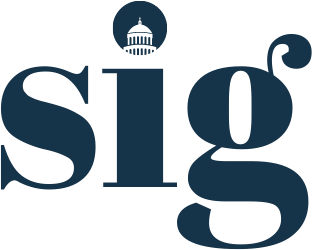Michael Rover ’19, is from Mount Kisco, NY. He is a current SIG committee member.
On Thursday, April 21, Stanford in Government (SIG) welcomed Deborah Jones, the former United States Ambassador to Libya to Paul Brest Hall. The event was cosponsored by the Arab Students Association at Stanford, the American Middle Eastern Network for Dialogue at Stanford, the Society for International Affairs at Stanford, and Stanford’s Freeman Spogli Institute for International Studies.
Ambassador Jones spoke about the Middle East, her experiences abroad, and American foreign policy in general. Eager to engage her audience, Ambassador Jones delivered remarks that brought together her considerable foreign policy experience with a unique and incisive perspective on American intervention abroad. Her discussion included historical and personal anecdotes that created a lively atmosphere in the room.
After she spoke, Ambassador Jones was kind enough to stay in the hall for nearly an hour answering questions from students and other members of the Stanford community. Members of SIG’s Public Policy Forum and the General Events programming committee facilitated the discussions, which focused on key elements of Ambassador Jones’ talk as well as on current events in the Middle East.
Among the interesting discussion topics was the so-called “bipartisan foreign policy consensus” of the past few decades, as well as the factors that continue to lead to upheaval in Arab states. Ambassador Jones was quick to provide examples from the history of various Arab states, including Egypt, Iraq, and Libya.
This was an extremely successful event, with such high attendance that some were forced to stand in the back. We thank Ambassador Jones for her contribution to the discussion of foreign policy in the Stanford community, both at this event and at two SIG Policy Lunches the same week.
Credit for this event is also due to SIG Chair Robert Chun and to SIG’s Special Events Committee. SIG also thanks Professor Margot Gerritsen, who was the essential contact with Ambassador Jones and who provided support both before and during the event.
— Michael Rover


